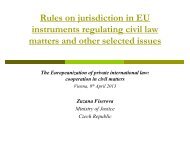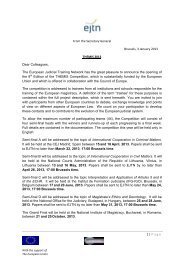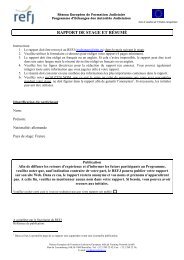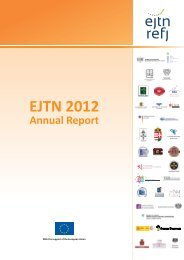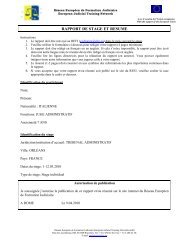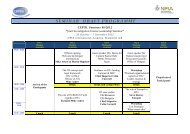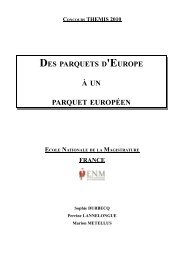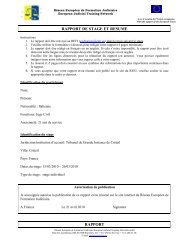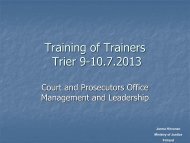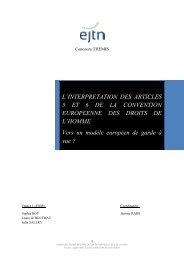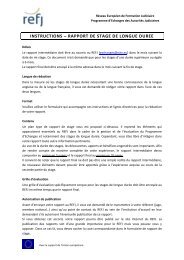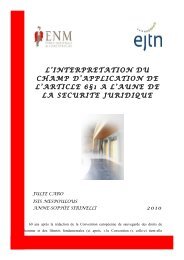European Criminal Justice - EJTN
European Criminal Justice - EJTN
European Criminal Justice - EJTN
- No tags were found...
You also want an ePaper? Increase the reach of your titles
YUMPU automatically turns print PDFs into web optimized ePapers that Google loves.
<strong>EJTN</strong> training guideline in <strong>European</strong> <strong>Criminal</strong> <strong>Justice</strong> - Update 2011A2) Basic seminarsBasic seminars are defined as training events in which the overall structure ofthe respective field of law is presented. Their optimal length should rangebetween 3-5 days. The objective of these is to introduce participants to thetopic and allow them to gain comprehensive understanding of the field. Basicseminars can be combined with complementary e-learning courses. Inaddition, a basic seminar can be combined with a study visi to, for instance,a <strong>European</strong> institution or agency, other judicial schools, etc.A3) Specialised seminarsSpecialised seminars can be defined as training events in which a certain topicis presented in depth. The optimal length of such a seminar would bebetween 2-3 days. The objective of these should be to offer intensive trainingon a very specific topic. An in-depth training can include practical trainingmethods such as case studies and workshops, the main training howeverwould consist of presentations of the respective topics. Specialised seminarscan be combined with complementary e-learning courses.A4) WorkshopsWorkshops are defined as events in which the focus is on practical training.The ideal length of a workshop would be 1-2days. Training methods used in aworkshop should range from case studies to moot courts and other rolegames.A5) Study visitsStudy visits will offer participants the opportunity to obtain a realistic insightinto the daily work of <strong>European</strong> institutions and agencies as well as theirnational counterparts such as courts, police cooperation centres etc. Thisexperience will lead to a better understanding of the work of theseinstitutions, the role they can play to support practitioners, obstacles thatmay emerge and can, in this way, further the (mutual) trust in andconsequently usage of these institutions. EU institutions and agencies ofspecial significance for the purposes of these guidelines are:- <strong>European</strong> Court of Human Rights (ECHR)- <strong>European</strong> Court of <strong>Justice</strong> (ECJ)- Eurojust- <strong>European</strong> Judicial Network (EJN)- Europol- International <strong>Criminal</strong> Court (ICC)A6) Distance learning coursesWithin the framework of so-called e-learning, there are additionalpossibilities for distance learning courses. These courses can last for between2 and 4 weeks. Courses can cover the area of basic courses as defined above,as well as provide in-depth courses although the main focus should be onbasic courses that offer a very comprehensive overview of <strong>European</strong> criminaljustice. Methods used in these courses can be: explanatory papers to be read,multiple-choice tests, case studies etc. Furthermore, self-paced or self-directeddistance learning could be offered, meaning training sessions that the trainee7



